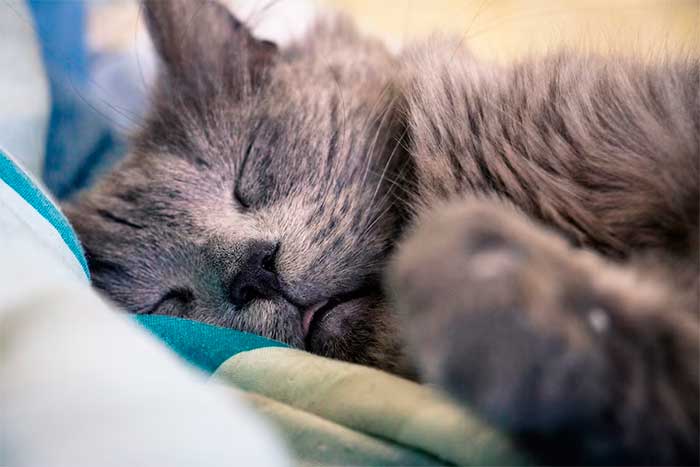
As pet parents, we always want our furry friends to be healthy and illnesses-free. However, just like humans, cats can also develop health issues that may cause concern. One of the most common ailments that cats can experience is feline cough. Various factors can cause this condition and may exhibit different symptoms that can be difficult to identify without proper knowledge. This post will explore everything pet parents should know about feline cough – from its causes and symptoms to insurance coverage options available for treatment.
Feline Cough
Feline cough is a respiratory condition in cats that causes them to make repeated, forceful coughing sounds. A variety of factors can cause it. Recognizing the symptoms of feline cough is crucial to get your cat the necessary treatment. Insurance options are available to help cover the costs associated with feline cough and other health conditions. Pet insurance policies can cover veterinary visits, diagnostic testing, treatments, and medications. It can alleviate the financial burdens of addressing your cat’s health needs.
Causes of Feline Cough
Infectious agents and non-infectious causes can cause feline cough.
Infectious Agents
- Viral infections – Cats can catch viruses like Feline Calicivirus, Feline Herpesvirus, and occasionally Canine Distemper Virus from other cats and environments with infected cats. These viruses damage the respiratory tract lining and cause inflammation, leading to clinical signs such as coughing.
- Bacterial infections – Cats can also develop pneumonia from organisms like Mycoplasma or Chlamydophila felis. These can enter the lungs directly through the airways or via the bloodstream from other parts of the body.
- Parasitic infections – Parasites like heartworm, lungworm, and roundworms can also cause coughing as they migrate through the lungs.
Non-Infectious Causes
- Allergies – Allergic reactions to pollen, dust mites, grasses, or other environmental allergens can lead to respiratory tract inflammation and coughing.
- Asthma – Asthma is a chronic condition in cats that can cause coughing. An inflammatory response to inhaled allergens or irritants causes it.
- Heart disease – Heart disease causes the inability of the heart to adequately pump blood, leading to a buildup of fluid in the airways.
Symptoms of Feline Cough
It is important to determine feline cough for necessary treatment. Symptoms include:
- Dry, Hacking Cough – A dry, hacking cough is a common symptom of feline cough and can be quite loud. It may sound like an inhale-exhale pattern, or the cat is trying to clear their throat.
- Production of Phlegm or Mucus – Along with dry coughing, cats with Feline Cough may also produce phlegm or mucus. It may be clear or yellowish and can sometimes have an unpleasant smell.
- Wheezing or Labored Breathing – Wheezing or labored breathing is due to the infected airways becoming narrowed. You may notice that your cat has difficulty taking deep breaths and is having a harder time than usual catching its breath.
- Other Signs of Illness – Your cat may also show other signs of illness. These include lack of appetite, runny eyes, nasal discharge, and lethargy. Monitor your cat for any changes in behavior or health so that it can be treated promptly.
Diagnosis and Treatment
Feline cough can cause discomfort and distress to your feline friend and requires prompt attention and treatment.
Veterinary Examination and Testing
A veterinary examination is necessary to diagnose feline cough. The veterinarian will physically examine the cat’s respiratory system and do blood work, x-rays, and bronchoscopy tests. These tests help identify the underlying cause of the cough and determine the appropriate treatment plan.
Medications and Therapies
The treatment of feline cough includes antibiotics, antihistamines, and bronchodilators. Additionally, cough suppressants may be prescribed to relieve the cat’s discomfort and prevent further irritation of the airways.
In severe cases, hospitalization and oxygen therapy may be required to support the cat’s breathing until the underlying cause is treated.
Preventative Measures
Keep your cat’s vaccinations up to date and provide a clean and healthy environment. Avoid exposing your cat to cigarette smoke, dust, and other irritants that can trigger respiratory problems. Maintaining good hygiene and regularly cleaning litter boxes and bedding is also important. Regular check-ups with the veterinarian can help identify potential health issues before they become serious.
Insurance Coverage
Pet owners opt for pet insurance for the health and well-being of furry friends. There are three types of pet insurance:
- Accident-only coverage typically only covers unexpected injuries.
- Accident and illness coverage can help cover the cost of injuries and illnesses, including feline cough.
- Comprehensive coverage is the most extensive option, covering preventive care, routine visits to the vet, and more.
Reviewing the policy details is important to ensure the condition is covered. Some pet insurance policies may have exclusions or limitations on coverage for pre-existing conditions, while others have waiting periods before coverage kicks in.
Final Thoughts
Feline cough can cause worry and distress for any pet parent and should not be taken lightly. While it can be frightening, by learning about the possible causes, symptoms, treatments, and the insurance coverage options available to help finance medical costs associated with feline cough, pet parents can make better-informed decisions when faced with this health issue. Your cat’s well-being is ultimately your responsibility, so know what you’re up against and equip yourself with as much knowledge as possible. Stay vigilant and understand which steps to take if your cat develops a feline cough — it could save them from serious health issues.


